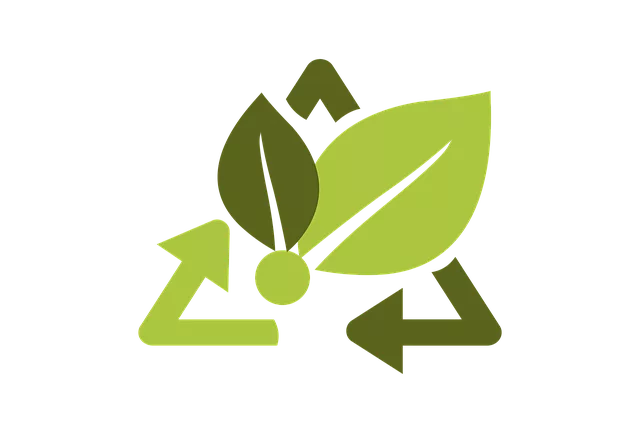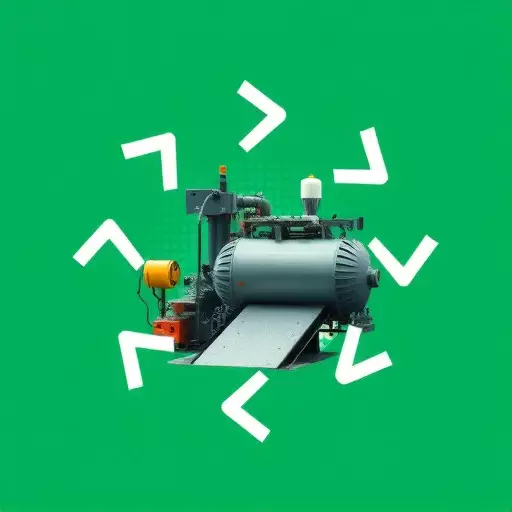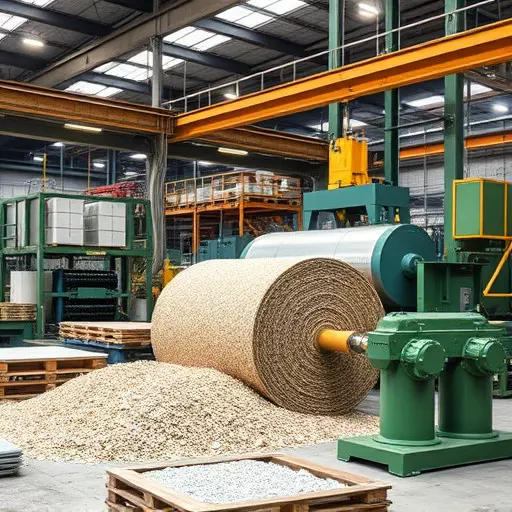The textile industry's traditional environmental impact has sparked a revolution towards sustainability. In Toledo, sustainable material processing involves innovative solutions like alternative materials, efficient dyeing, and closed-loop systems, minimizing waste and pollution through eco-friendly manufacturing. The circular economy promotes recycling and resource regeneration, reducing the carbon footprint of textile production. Local businesses are adopting green chemistry, biodegradable fabrics, and closed-loop systems, positioning Toledo as a leader in eco-conscious manufacturing and driving positive change globally.
In today’s world, sustainable textile processing is not just a trend but an imperative. As consumers become more eco-conscious, the global fashion industry is undergoing a metamorphosis, driven by the need for sustainable material processing in Toledo and beyond. This article delves into the transformative power of eco-friendly manufacturing techniques and explores how the circular economy is reshaping the landscape. We examine innovations in technology that enhance green processing and highlight global initiatives promoting these sustainable practices.
- Understanding Sustainable Textile Processing: A Foundation for Change
- The Role of Eco-Friendly Materials in Revolutionizing the Industry
- Embracing the Circular Economy: A New Approach to Manufacturing Textiles
- Innovations in Technology for Green and Efficient Processing
- Global Initiatives and Their Impact on Promoting Sustainable Material Processing in Toledo
Understanding Sustainable Textile Processing: A Foundation for Change
In the realm of sustainable development, textile processing plays a pivotal role due to the industry’s significant environmental footprint. Traditional methods often involve resource-intensive processes that contribute to pollution and waste generation. Understanding sustainable material processing is thus fundamental in driving change towards a greener future. By adopting eco-friendly manufacturing practices, the textile sector can significantly reduce its ecological impact.
The concept of the circular economy offers a promising framework for transforming the industry. This economic model encourages recycling, reuse, and regeneration, aiming to eliminate waste and pollution. In the context of sustainable material processing Toledo, innovation in textile production involves exploring alternative materials, implementing efficient dyeing techniques, and adopting closed-loop systems that recuperate and reutilize resources. Such approaches not only mitigate environmental harm but also foster a more resilient and responsible manufacturing landscape.
The Role of Eco-Friendly Materials in Revolutionizing the Industry
The textile industry has long been known for its environmental impact, from the cultivation of conventional fibres to the energy-intensive processing methods used in manufacturing. However, a revolution is underway as eco-friendly materials and sustainable material processing techniques gain traction. These innovations are not just a trend but a necessary step towards a more circular economy, where resources are conserved and waste is minimized.
By adopting eco-friendly manufacturing practices, the industry can drastically reduce its carbon footprint. Sustainable materials like organic cotton, hemp, and recycled polyester offer viable alternatives to traditional fibres. These materials not only cut down on water usage and chemical pollution but also promote soil health when cultivated responsibly. Moreover, the circular economy principle encourages recycling and upcycling textiles, reducing the need for constant raw material extraction and fostering a more sustainable production cycle.
Embracing the Circular Economy: A New Approach to Manufacturing Textiles
The traditional linear model of textile production has long been a significant contributor to environmental degradation and waste. This involves extracting raw materials, processing them into fabrics, manufacturing garments, and ultimately discarding them after use. However, embracing a circular economy presents a revolutionary approach to sustainable material processing in Toledo and beyond. By redesigning the system, we can move away from a take-make-dispose mentality towards one that is regenerative and resource-efficient.
This new model encourages the reuse, recycling, and repurposing of textiles, minimizing waste generation. It involves innovative practices such as upcycling, where discarded fabrics are transformed into new products, and closed-loop manufacturing, where materials are recovered and reused within the production process. Adopting these eco-friendly manufacturing techniques not only reduces the environmental footprint but also opens doors to creative opportunities, fostering a more sustainable future for the textile industry.
Innovations in Technology for Green and Efficient Processing
The pursuit of a greener and more efficient textile industry has sparked remarkable innovations in technology for sustainable material processing toledo. Eco-friendly manufacturing techniques are at the forefront of this revolution, aiming to minimize the environmental impact traditionally associated with textile production. One prominent approach is adopting circular economy principles, where waste is minimized, resources are reused, and recycled materials are utilized. Advanced recycling technologies enable the upcycling of post-consumer textiles, reducing the demand for virgin fibers and diverting waste from landfills.
Additionally, digital innovations like 3D printing and smart fabrics are reshaping the landscape of textile processing. 3D printing allows for precise customization, enabling manufacturers to create intricate designs with minimal material waste. Smart fabrics, embedded with sensors and responsive technologies, offer versatile performance and functionality while reducing the need for chemical treatments and energy-intensive processes. These breakthroughs not only contribute to a more sustainable future but also open doors for creative expression in the textile industry.
Global Initiatives and Their Impact on Promoting Sustainable Material Processing in Toledo
Global initiatives play a pivotal role in promoting sustainable material processing in Toledo and beyond. Organizations like the United Nations Industrial Development Organization (UNIDO) have been at the forefront, advocating for eco-friendly manufacturing practices. These efforts focus on transitioning to renewable resources, reducing waste, and adopting circular economy models, which minimize environmental impact. By fostering partnerships between industry leaders, researchers, and policymakers, these initiatives drive innovation in sustainable textile processing techniques.
In Toledo, local businesses are embracing these global trends. They’re implementing green chemistry principles, developing biodegradable fabrics, and exploring closed-loop systems that recycle used textiles into new products. Such proactive steps not only contribute to a cleaner environment but also enhance the city’s reputation as a leader in eco-conscious manufacturing. This shift towards sustainable material processing is resonating globally, highlighting Toledo’s potential to drive positive change in the textile industry.


